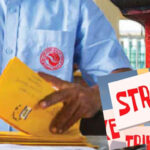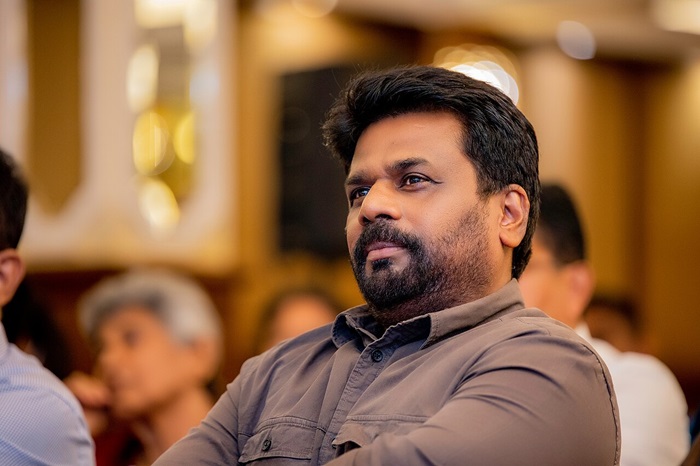
Wide angle focuses on President AKD’s strong Popularity
- CNL Reporter
- August 18, 2025
- Weekly Political Review
- President AKD
- 0 Comments
Weekly Political Review
NPP Government Grapples with Challenges on All Fronts
President Anura Kumara Dissanayake (AKD) and his Janatha Vimukthi Peramuna (JVP)-led National People’s Power (NPP) Government continue to face the realities of governance, grappling with a string of challenges ranging from economic pressures to human rights scrutiny. Barely a year into office, the administration is learning the complexities of balancing promises of change with the daily grind of government.
Popularity amid Criticism
Despite criticism over questionable actions by certain NPP members and murmurs of disunity within the ruling coalition, AKD’s personal popularity remains resilient. A recent public sentiment survey highlighted his strong support among youth, particularly in the North Central, Uva, and Eastern Provinces. His reputation as a leader committed to fighting corruption, reducing political interference in investigations, and advancing ethnic reconciliation has bolstered his appeal.

For a movement long considered a protest voice rather than a governing force, this popularity is both an asset and a cushion against political turbulence. Yet, the Government’s critics argue that popularity alone cannot offset governance missteps or economic hardship.
Economic Recovery: Mixed Signals
Central Bank Governor Dr. Nandalal Weerasinghe struck an optimistic note during an interview with Channel News Asia, saying Sri Lanka’s economy is recovering faster than anticipated. According to him, reforms are bearing fruit, with expectations that the nation will surpass pre-crisis levels in employment, income, and poverty reduction within a year.
But the reality on the ground remains grim. A new UN Human Rights Office report painted a stark picture of continuing deprivation. The poverty rate has doubled since 2019 to 24.5%, with food insecurity still rampant. Over half of households are coping by skipping meals or eating less, while wages remain below pre-crisis levels despite modest recovery.
These findings underline the dual narrative the AKD administration must contend with—one of macroeconomic stability and reform success on the one hand, and stubborn poverty and inequality on the other. Preparing the 2026 budget will be a critical test of whether economic recovery can be felt beyond the spreadsheets.
Human Rights and UNHRC Pressures
Adding to the pressure, Sri Lanka’s human rights record has resurfaced as an international flashpoint ahead of the September sessions of the UN Human Rights Council (UNHRC). UN High Commissioner Volker Türk’s call for a “clear and formal acknowledgment” of past abuses during the civil war has placed the Government in a delicate position. For AKD, navigating this minefield requires balancing international expectations with domestic sensitivities.
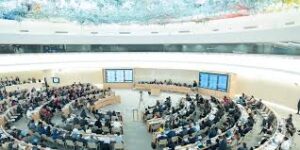
Meanwhile, the Ilankai Tamil Arasu Katchi (ITAK) has revived street-level dissent, organising hartals in the north and east over a death allegedly linked to army questioning. Although postponed, the protests reflect simmering tensions. Locals claim an increasing number of activists joining demonstrations are actually positioning themselves as future provincial council candidates, testing political waters under the guise of civil activism.
Growing Pains of Governance
NPP came to power promising a break from the pomp and pageantry of traditional politics. Yet, some of its MPs appear to be repeating the same playbook. MP Lakmali Hemachandra was seen garlanded and celebrated during the resumption of a bus service, while MP K. Ilankumaran inaugurated a water tap in Jaffna—ironically echoing the very behaviour the NPP once mocked. These incidents, while minor, highlight the disconnect between rhetoric and practice that critics say is beginning to tarnish the Government’s reformist image.
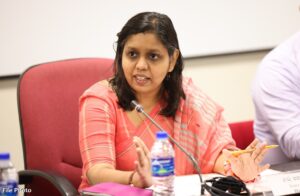
The police too were left disappointed this week when new IGP Priyantha Weerasooriya used his first virtual meeting to lecture officers on the Government’s vision instead of hearing their grievances. Many rank-and-file members had hoped for a chance to highlight operational shortcomings.
Local Initiatives and Missteps
The “Clean Sri Lanka” campaign was launched in Jaffna with much fanfare, complete with branded T-shirts. Yet, even here controversy surfaced when a municipal councilor, also an academic, attended council sittings in campaign attire, sparking debate over dress code violations.
Back in Colombo, the Presidential Secretariat staff staged a musical show during office hours, drawing sarcastic remarks about “busting the stress of not doing anything but warming chairs.” Such episodes feed into opposition criticism that the NPP Government, despite its promises, is sliding into the same trappings of inefficiency it once decried.
Japan Visit and Social Media Mockery
News that President Dissanayake will visit Japan next month drew light-hearted jabs on social media. Some users joked that he was heading there to recover former Speaker Asoka Ranwala’s missing PhD certificate from Waseda University—a controversy that forced Ranwala’s resignation last year. The episode reflects how even routine foreign visits are subject to political humour in today’s hyper-connected landscape.
Cardinal Ranjith Stirs Debate
Colombo Archbishop Malcolm Cardinal Ranjith stirred fresh controversy with remarks opposing same-sex relations and gender recognition policies. Claiming that the Health Ministry facilitates legal gender change after psychiatric certification, the Cardinal warned such practices undermine cultural norms rooted in Buddhism.
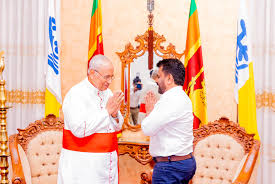
His comments drew sharp criticism from human rights activists, who accused him of spreading misleading and discriminatory narratives. Supporters, however, praised his stance, drawing comparisons to conservative leaders abroad. The clash underscored how cultural debates continue to polarise Sri Lankan politics.
Judicial Housing Concerns
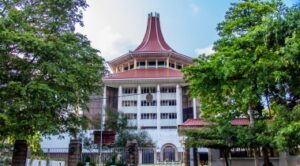
Away from the spotlight, the Judicial Services Commission (JSC) raised alarms over the poor condition of judges’ official residences. Broken furniture, clogged drains, and mosquito infestations prompted warnings that failure to carry out timely maintenance would cost taxpayers dearly. Regular inspections by technical officers have now been ordered.
Fishermen and Indian Trawlers
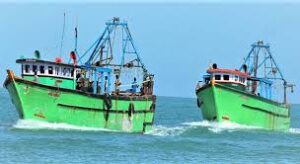
Northern fishermen’s frustrations resurfaced this week with complaints that seized Indian bottom trawlers are crowding local harbours. Over 30 confiscated vessels lie abandoned in Myliddy alone, with others in Mannar and Karainagar. Moves are underway to auction or dispose of the trawlers, even as fishermen in Tamil Nadu staged protests demanding the release of their colleagues detained in Sri Lanka. The episode highlights the ongoing cross-border tensions that complicate livelihoods in the north.
A Government Still Learning
Taken together, the events of the week reveal a government still finding its footing in the art of governance. President Dissanayake’s personal popularity remains high, but the NPP’s promise of a new political culture is under increasing strain. Missteps by MPs, challenges from international human rights bodies, economic recovery tempered by deep social distress, and restive politics in the north all add to the pressures confronting the administration.
For the NPP, the lesson is clear: popularity can only carry it so far. Governance requires not just sincerity but discipline, foresight, and consistency. The coming months—particularly the budget and the UNHRC sessions—will test whether AKD’s government can move from the rhetoric of change to the reality of effective leadership.

